The Welch Foundation has been funding fundamental chemistry in Texas for decades but it also gives out a prestigious chemistry award with a substantial cash prize every year. What’s it all about?
What’s the Welch Foundation?
It’s a Texas-based foundation supporting chemistry and chemists in the state, funded by a generous and substantial legacy from Robert Alonzo Welch, who made his fortune investing in Texan oilfields and minerals. Although he was born in South Carolina, he moved to Texas as a teenager and developed a deep love for his adopted home state. He also became convinced that chemistry is an essential tool for making a better world.
Welch died in 1952, and a couple of years later the foundation was born, supported by a $25m trust fund bequeathed in his will. Ever since then, it has provided significant support for chemistry at educational institutions in Texas via research grants, strengthening smaller departmental programs and establishing endowed chairs. It funds postdoctoral fellows, provides catalyst grants to projects aiming to solve grand problems, and more.
It also holds an annual conference, and it presents two awards every year: one to an early-career chemist in Texas, and the second, the Welch Award, to recognise pioneering chemists anywhere in the world.
The Welch Award… What’s that?
The Welch Award is a prestigious international prize given every year by the foundation. Its aim is to encourage basic chemical research and recognise the value of chemical research contributions to improving human life – just as Welch hoped.
It’s been given every year since 1972, and the list of recipients is a ‘who’s who’ of chemistry achievement. It includes such luminaries as organic chemists George Whitesides, Carolyn Bertozzi and Koji Nakanishi, materials specialist John Goodenough, and inorganic chemist Albert Cotton of undergraduate textbook fame, to name just a few.
In contrast to the foundation’s funding strategy, the recipients don’t have to be working in Texas – or even from the US. The second recipient was Swiss organic chemist Albert Eschenmoser, and there have been more from overseas over the years, including Alan Battersby from the UK and France’s Pierre Chambon. The Foundation would love to encourage a wider breadth of nominations from across the world.
The Welch Foundation is dedicated to supporting chemists working to make a better world for us all, regardless of where they are located, or the field of chemistry they work in. What really matters is that their chemistry has had a tangible positive effect on humankind.
Adam Kuspa, President of the Welch Foundation.
The recipient doesn’t just receive plaudits – there’s a substantial cash prize of $500,000, too. That makes the Welch Award one of the most valuable prizes in science.
$500,000? Now you’ve got my attention.
We thought we might. You can’t nominate yourself, but if you meet the criteria, perhaps someone else should be putting you forward for the award. Or maybe you should be putting an application in for another great chemist you know.
It’s easy, and you’ll find detailed instructions on what’s required on the Welch Foundation website. There’s plenty of time, too – nominations close at the end of January. If it doesn’t win straight away, the application remains valid for five years, so it can be considered again in the future.
Surely there’s got to be a catch…
No. There really isn’t. The award has been given out every year for more than half a century to chemists doing exceptional work. The judges are both independent and highly credible.
They’ve even made solid predictions for future Nobel Prize winners – with Carolyn Bertozzi and Henry Taube both winning in the same year they received the Nobel. Several more won the Nobel within a year or two of their Welch triumph.
Hold on… Welch Award winners have gone on to be Nobel laureates?
Yes, nine Welch Award winners have thus far gone on to win the Nobel Prize – seven in chemistry and another two who won the physiology or medicine prize. So the Welch judges have proved pretty good at predicting future Nobel success. The panel’s predictive skills proved particularly strong for the 2013 winner, though, as Louis Brus was awarded the Nobel for his work on quantum dots a full decade after his Welch win. Now that’s foresight.
| Welch Award | Nobel prize | Recipient |
|---|---|---|
| M: Physiology or medicine C: Chemistry |
||
|
1980 |
1982 M |
Sune Bergström, Karolinska Institute |
|
1983 |
1983 C |
Henry Taube, Stanford University |
|
1991 |
1992 M |
Edwin Krebs, Howard Hughes Medical Institute, University of Washington |
|
1992 |
1996 C |
Richard Smalley, Rice University |
|
1997 |
1999 C |
Ahmed Zewail, California Institute of Technology |
|
2001 |
2006 C |
Roger Kornberg, Stanford University |
|
2017 |
2019 C |
John Goodenough, University of Texas at Austin |
|
2022 |
2022 C |
Carolyn Bertozzi, Stanford University |
|
2013 |
2023 C |
Louis Brus, Columbia University |
Who decides who wins?
The shortlist for the award is drawn up by the Welch Foundation’s scientific advisory board, and the final decision is made by the foundation’s board of directors. The 10-member advisory board is chaired by Catherine Murphy of the University of Illinois Urbana Champaign, and they cover a wide spread of chemistries from biological to theoretical. That gives great insight across the breadth of chemistry disciplines, something that is also reflected in the list of winners.
I’m deeply grateful to The Welch Foundation for casting a spotlight on chemistry and the chemical sciences and the critical role they play in the economy.
Carolyn Bertozzi, Nobel laureate and recipient of the Welch Award in 2022
Why I haven’t I heard about this award before?
We have no idea. Yes, the Welch Foundation is perhaps best known for its unstinting and specific support of chemistry across Texas, but the Welch award is different. It’s completely agnostic of location – most of the recipients have hailed from outside Texas, and several came from overseas.
And that’s why the Welch Foundation is working with the RSC to raise awareness of their work, and their award, among members and the wider chemistry community. They are extremely keen to attract a wider pool of applicants, so have a think about who you believe ought to win, and get that nomination in.
Who has won this year?
Well, the judges decided to award the prize to two chemists this year, both of whom are extremely familiar names in the bioorganic chemistry world. Harvard’s Stuart Schreiber won for the discoveries he’s made using chemical probes to understand the chemical machinery of the cell, and for developing potential medicines using this knowledge. And Peter Schultz of Scripps was recognised for creating new letters in the alphabet of life and using chemical diversity to develop novel therapeutics and materials. You can find out more about their brilliant work at this year’s Welch Conference in October – both will be giving presentations.
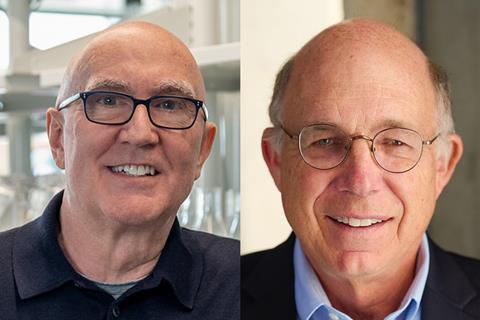
These two remarkable scientists have significantly advanced our ability to leverage chemical tools to affect biological systems, thus improving both health outcomes and materials science.
Fred Brazelton, Chair and Director, Welch Foundation
Wait, there’s a conference as well?
Oh yes. It’s taken place every year since 1957, it attracts heavyweight speakers, and there’s a different chemistry focus each time. Last year, its theme was molecular catalysis, and the year before it covered materials. And this year’s theme is new horizons in drug discovery, so Stuart and Peter’s presentations will fit in perfectly.
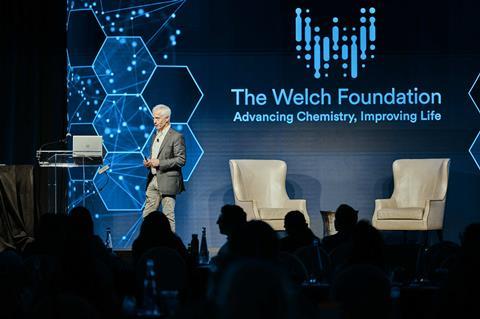
This year’s conference is being held in Houston, Texas (and virtually via live-stream) on Monday 27 and Tuesday 28 October, and is being chaired by Kevin Shokat of UCSF. Sessions will cover drugs as rescue agents, living therapeutics, chemoproteomics and drug discovery, and molecular glues. It sounds fascinating. Even better – attendance is free! Take a look at the program:
Welch Conference programme 2025
This programme is from the Welch Foundation website. View this page directly in its own window.
I’m not sure I can make those dates.
No problem, you can attend online – ever since the pandemic, it’s been livestreamed. But even if you can’t find the time to watch it live, there will be on-demand content that you can watch at any time. Here’s what you might have missed from last years’ conference.
Sounds like I need to brush up on the Welch Foundation, then! What next?
Yes, you definitely need to be finding out more. Here are some some useful links:
- Find out more about the nomination process for the award
- Get yourself booked on that conference
- Get in touch to add yourself to the mailing list










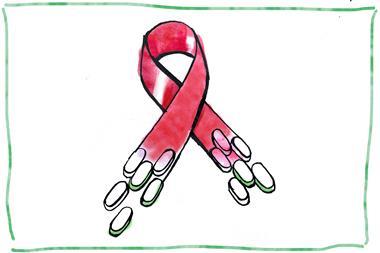
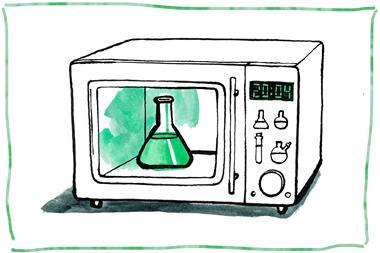
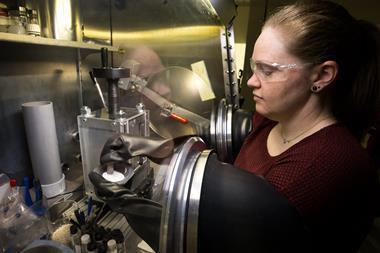

No comments yet